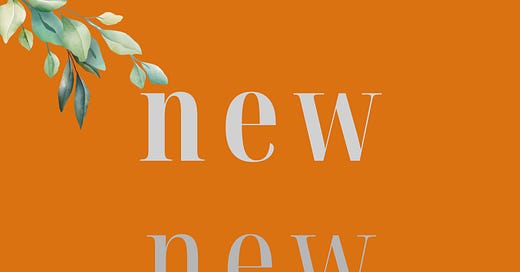Parlez-Vous Francais?
One of my dreams is in the process of coming to fruition, read to learn more. Yes, it has something to do with French.
You might not know this, but English is not my first language. In fact, it’s my third. The first language I ever spoke was Kreyol, and the second is French. Today, I want to share a bit about my second language: French.
I was born and raised in Haiti for the first half of my adolescent years, where the national language is French. In Haiti, French is often known as the language of diplomats, the bourgeoisie, the educated; the language I learned in the classrooms of Haiti. I remember struggling to recite rote French lessons at school, only to go home and switch back to Kreyol. I also remember the fear of being found out, that I wasn’t fluent. Not to mention, my accent was horrible.
I remember being only seven or eight when a teacher sent me to the principal’s office to ask for a stick of chalk. It was my greatest fear come true. I was terrified of stumbling over my French, or worse, mixing in Kreyol words and passing them off as French, and the punishment that would follow such mistakes. As I anxiously walked to the principal’s office, I kept rehearsing the sentence in French: “I’d like a stick of chalk, please.” “Je veux un bâton de craie, s’il vous plaît.” That sentence is etched in my memory to this day.
Eventually, I learned to read French. I never became fully fluent, but I kept practicing, especially in the Haitian church I grew up in here in the U.S. The Bible translation we used was almost exclusively French, so I memorized entire Psalms in that language; Psalms 23, 46, and 121 were my anchors, and they still are. When I read those Psalms in French, they move me in a way nothing else can. Something inside of me shifts. The words land deeper; they resonate more fully. There is something powerful about engaging with scripture, worship, or even a story in your native tongue.
A couple of weeks ago, I was at church, worshiping, and worship was great. We sang a few popular songs, all in English, as that’s the primary language that connects our multiethnic community. But then the worship leader switched to a Spanish song and the minute she did, I noticed a man in the front row’s posture instantly change. His body shifted. He began to leap and sing with more vigor and passion. That’s the power of someone connecting with God in their native tongue.
There are many complicated feelings entangled with someone’s native language, because they’re not just words, are they? Language shapes one’s identity. There are nuances, tones, inside jokes, slang, stories, and life all wrapped up in a person’s native tongue. French is a part of my story and my people’s story in Haiti, and I’m grateful for the languages that have shaped me helping me describe my world and my relationship to God and others.


I’m writing about French, languages, and native tongues today because something new is coming soon. A dream I’ve always carried with me is now in the process of becoming a reality: translating my book Does God See Me? into French; Est-ce Que Dieu Me Voit?
About a year ago, Does God See Me? was released to the world. It was written from a place of deep pain and spiritual searching. Our family experienced many traumatic losses, and my soul was in deep anguish. I was in what many call “the dark night of the soul.” It felt like what that Saturday after the crucifixion must have felt like; loss without hope. That’s where I was, and that’s the space from which the book emerged. I wrote the book as my lament. In fact, the question in the title is a question of lament, a lament that I believed would resonate with women around the world. And it did. But we’re taking some steps to reach even more women around the world.
Today, I’m presenting the first steps toward translating my book Does God See Me? into French: Est-ce Que Dieu Me Voit?, a campaign to help me move forward with this dream. More to come about the campaign.




